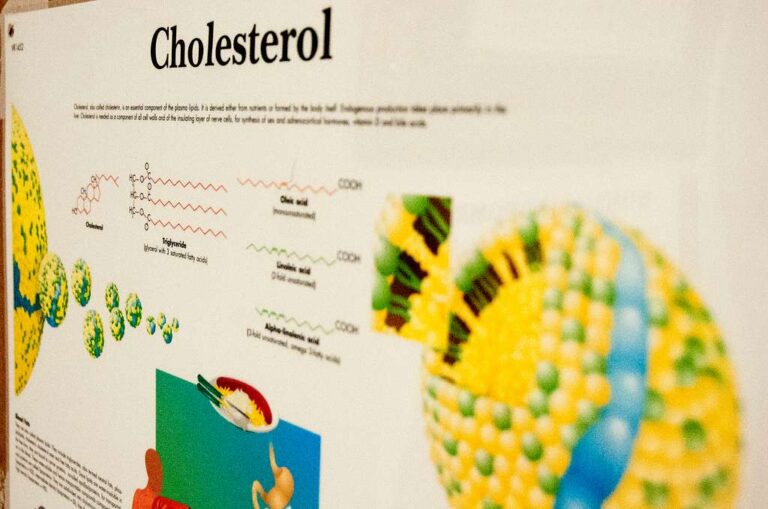How to Maintain a Healthy Heart: A Complete Guide to Better Heart Health

The heart is one of the most important organs in our body. It works non-stop, pumping blood and oxygen to every part of us. But many people often ignore heart health until problems arise. The good news is that keeping your heart healthy isn’t complicated. With the right lifestyle choices, you can protect your heart and reduce the risk of heart disease, which is the leading cause of death worldwide.
In this article, we’ll cover everything you need to know about how to maintain a healthy heart in simple terms — from what to eat, how to exercise, what to avoid, and much more.
Why Heart Health Matters
Your heart supports every part of your body by pumping oxygen-rich blood. A healthy heart means:
- More energy for daily activities
- Lower risk of stroke and heart attack
- Better quality of life
- Longer life expectancy
But when the heart is weak or clogged with plaque, it can’t do its job properly. That’s why maintaining heart health is key at any age.
1. Eat a Heart-Healthy Diet
What you eat plays a huge role in your heart’s health.
Foods that Are Good for the Heart:
- Fruits and vegetables – rich in fiber, vitamins, and antioxidants
- Whole grains – like oats, brown rice, and whole wheat
- Healthy fats – found in nuts, seeds, avocados, and olive oil
- Lean protein – such as fish (especially salmon and sardines), beans, and chicken
- Low-fat dairy – like yogurt and milk
Foods to Avoid or Limit:
- Fried foods
- Processed meats (like bacon and sausages)
- Sugary drinks and snacks
- Excess salt and sodium
- Trans fats and saturated fats
Simple tip: Try to cook at home more often using fresh ingredients. Avoid packaged or fast foods whenever possible.
2. Get Regular Physical Activity
Exercise strengthens the heart, improves circulation, lowers cholesterol, and helps control weight.
Best Exercises for Heart Health:
- Walking briskly – 30 minutes a day, 5 times a week
- Swimming or cycling
- Jogging or running
- Dancing
- Yoga or Pilates – good for stress relief and flexibility
You don’t need to run a marathon. Even small activities like walking your dog or gardening can help if done regularly.
3. Maintain a Healthy Weight
Carrying extra weight, especially around the belly, can increase your risk of heart problems.
How to Manage Weight:
- Eat smaller, balanced meals
- Cut down on sugary drinks
- Avoid emotional or stress eating
- Track your progress with a weight or food journal
- Talk to a doctor or nutritionist if needed
A healthy weight can help lower blood pressure, reduce strain on the heart, and improve your energy levels.
4. Keep Stress Under Control
Stress is a silent enemy of the heart. Chronic stress can raise blood pressure, increase inflammation, and trigger unhealthy habits like overeating or smoking.
Ways to Reduce Stress:
- Deep breathing or meditation
- Listening to music or taking nature walks
- Journaling
- Spending time with loved ones
- Getting enough sleep
Try to build a routine that includes “me time” for mental and emotional health.
5. Quit Smoking and Limit Alcohol
Smoking is extremely harmful to your heart and blood vessels. It reduces oxygen in the blood and makes the heart work harder. If you smoke, quitting is the best thing you can do for your heart.
As for alcohol, drinking too much can raise your blood pressure, increase fat in the blood, and damage the heart muscle.
Tips:
- Seek support groups or apps to quit smoking
- Limit alcohol to 1 drink/day for women or 2 drinks/day for men
- Replace these habits with healthy alternatives like herbal tea or physical activity
6. Monitor Your Blood Pressure and Cholesterol
High blood pressure (hypertension) and high cholesterol often don’t have symptoms, but they are major risk factors for heart disease.
What to Do:
- Get your blood pressure and cholesterol checked regularly
- Follow doctor’s advice if medication is prescribed
- Eat foods low in sodium and unhealthy fats
- Reduce stress and stay active
Keep track of your numbers and aim for healthy targets.
7. Get Quality Sleep
Poor sleep can lead to heart problems over time. Adults should aim for 7–9 hours of good-quality sleep each night.
Sleep Tips:
- Stick to a regular bedtime schedule
- Avoid screens before bed
- Limit caffeine late in the day
- Make your room dark and quiet
Good sleep helps your body rest, repair, and regulate hormones important for heart health.
8. Stay Hydrated
Your heart needs proper hydration to pump blood effectively.
Daily Hydration Goals:
- Men: about 3.7 liters (13 cups)
- Women: about 2.7 liters (9 cups)
This includes water from drinks and food. Avoid sugary drinks — water is the best choice!
9. Build Healthy Relationships
Believe it or not, being socially connected can benefit your heart.
People who have strong relationships are less likely to suffer from stress, depression, or anxiety — all of which can affect heart health.
So spend time with family and friends, or join a group or class you enjoy.
10. Go for Regular Checkups
Regular doctor visits help catch problems early, even if you feel fine.
Ask about:
- Heart screenings
- Blood pressure and cholesterol tests
- Diabetes testing
- Family history and genetic risk
Early action can prevent major heart issues later.
Final Thoughts
Taking care of your heart is one of the smartest things you can do for yourself and your loved ones. It’s never too early — or too late — to start making heart-healthy choices.
Remember:
Eat smart
Move more
Stress less
Avoid smoking
Check in with your doctor
Your heart will thank you for it.
FAQs on How to Maintain a Healthy Heart
1. What are the first signs of heart problems?
Early signs may include chest pain, shortness of breath, fatigue, dizziness, or palpitations. If you notice any of these symptoms, consult a doctor right away.
2. How often should I get my heart checked?
Adults should have their blood pressure checked at least once every two years and cholesterol every 4–6 years. If you have risk factors, more frequent tests may be needed.
3. Can heart disease be reversed?
While heart disease cannot always be fully reversed, lifestyle changes like diet, exercise, quitting smoking, and stress management can greatly improve heart function and reduce risks.
4. What’s the best diet for heart health?
A Mediterranean-style diet that includes whole grains, lean proteins, healthy fats, and lots of fruits and vegetables is often recommended for heart health.
5. Is exercise safe for people with heart conditions?
Yes, but it should be doctor-approved. A heart specialist can suggest a safe exercise plan tailored to your condition.
Dr. Emma Green is a health and wellness expert with over 10 years of experience in nutrition and fitness. Passionate about helping others live their healthiest lives, Dr. Green shares practical advice on wellness, nutrition, and sustainable living through LivingSpristine.






